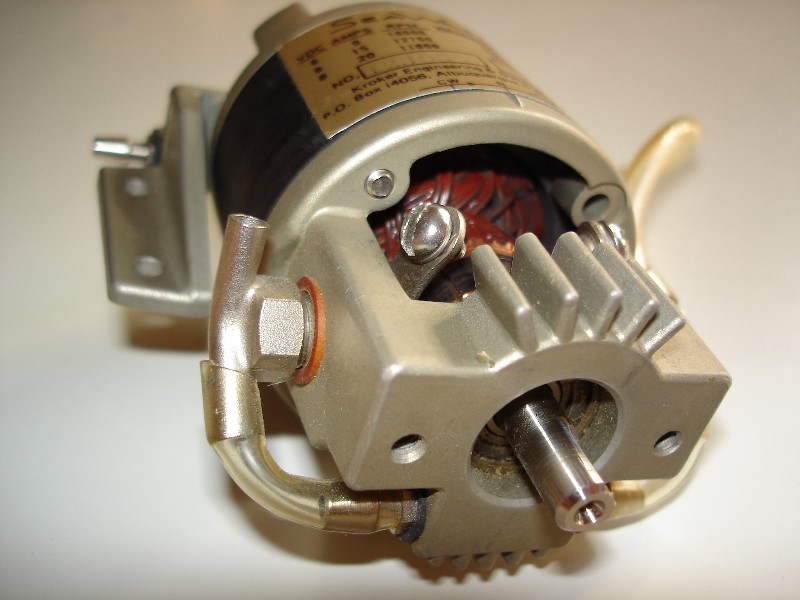Have you ever considered how your vehicle powers the headlights, radio, and almost every electronic component it contains? You probably thought it was the battery powering up all your car’s electrical components. Still, while your battery provides the energy required to start your vehicle and stabilizes the voltage as the engine runs, it’s the alternator that keeps things running. It’s not uncommon for the alternator to have issues, and this article focuses on why your alternator may be smoking and how to fix it.
There are several reasons why your alternator may be smoking, including a blown fuse, excessive friction, or damage to any of the components in the alternator.
As you’ll learn later in this article, driving with a smoking alternator is incredibly dangerous, and you must fix the problem as soon as possible.
The Important Function Of A Car’s Alternator
As mentioned earlier, the alternator keeps the engine and the car alive after starting a vehicle. From powering the radio, windshield wipers, windows, headlights, and the various dashboard sensors and instruments, the alternator plays an important function in the operation of any vehicle. So, while the battery starts the engine, the alternator effectively takes over and runs almost everything in a car.
The alternator powers all electronic components with direct current (DC) power. DC is generated when the alternator converts mechanical energy into electrical energy. Apart from powering the components of a car, an alternator also charges the car’s battery while driving. There’s a drive shaft connected to the alternator, and this drive shaft is to a pulley and a set of magnets.
Problems With The Alternator
Alternators are generally designed to be very durable and typically last a vehicle’s lifetime. So, many car owners will never need to repair or replace their alternators. But alternators can also develop problems and require replacements before a car is sent to the scrapyard.
Generally, the main factors behind alternator issues include exposure to water, general wear and tear, and frayed wires. All these, along with faulty parts and heat damage, can put alternators out of commission before a car goes to the scrapyard.
Why Is Your Alternator Smoking?
Several signs indicate an issue with the alternator, and one of them is smoke coming out of the hood. It’s never a good thing to see smoke coming out of your hood, and this is something you should take seriously, very seriously.
It’s worth mentioning that there are several reasons why smoke may be coming out of your hood, so unless you inspect your vehicle or take it to an auto shop, there’s no way you can be sure that the alternator is the cause of the smoke.
The main reason alternators smoke is excess friction, especially when the alternator is breaking down. When this happens, the only solution is to replace the faulty alternator. Usually, there’s no way around this.
Sometimes, the smoke may be due to a blown fuse on the alternator, and if this is the underlying cause, the alternator can be salvaged by replacing the fuse. Your mechanic will inform you of available options whenever there’s something wrong with your alternator. It’s either you repair or replace the alternator.

Can You Drive With A Smoking Alternator?
You should never drive your car if the alternator is smoking. In fact, you shouldn’t drive your car if smoke is coming out of the hood unless you are driving the car to an auto shop. If possible, have a mechanic come to you for an inspection.
Driving with a bad alternator can damage your car’s electrical system. Worst case scenario, your engine catches fire. So, it’s obvious why you should never drive with a smoking alternator.
Other Signs Of A Faulty Alternator
Smoke coming out of the alternator is just one of the many ways an issue with the alternator can manifest. There are other signs of a failing or bad alternator, and we’ll discuss them below. Here we go.
Dim Or Overly Bright Light
Since the alternator powers the electrical systems in a car when the engine is running, you are bound to see the electrical systems in your car malfunctioning when there’s an issue with the alternator. One of the most common problems observed with the electrical system is the lights in the car becoming too bright or too dim, and this is due to the inconsistent voltage from the alternator. So, whenever you notice your lights getting brighter or dimmer than usual, you may need to have your alternator looked at.
Other accessories in the car may also malfunction. The speedometer and other components in the dashboard may start to go haywire. The radio may stop working, and seat warmers may take longer to warm up.
Dead Battery
Remember that one of the functions of an alternator is to charge the battery, and when it fails at this crucial task, the battery loses charge faster than usual, and this results in a dead battery. Your battery can lose charges simply because it has reached its lifespan, or you forget to switch the headlights off. That being said, a failing alternator can make your battery lose charges consistently, as it may not be charging the battery properly when the engine is running.
If your battery is losing charges faster than usual, you should consider checking the alternator to see if the battery is in good condition.
Smelling rubber or wire odor
When the alternator’s drive belt starts to wear out, you’ll perceive an unpleasant burning rubber smell. The same will also happen if the drive belt rubs the pulley when the engine is running. Damaged wires can also result in an unpleasant wire odor.
Battery Warning Light Coming On
Many people assume that the battery warning light only indicates an issue with the battery. But it can also indicate problems with your car’s wider electrical system, and this includes the alternator. So, when you notice the battery warning light coming on and off, it most likely indicates that the alternator is malfunctioning.

